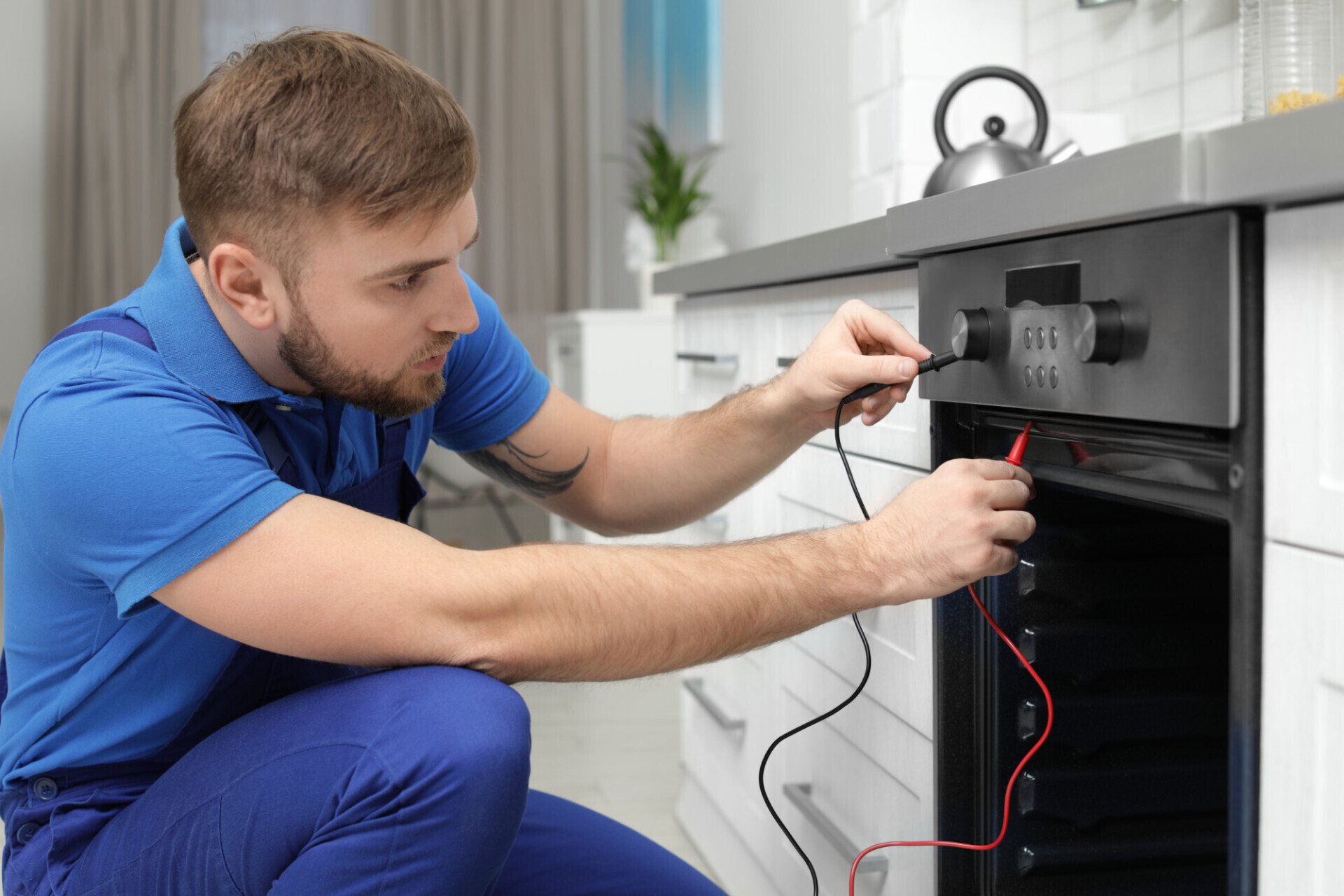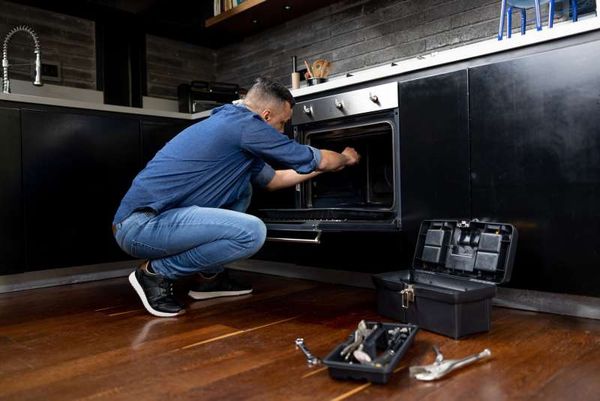Appliance Repair Toolkit – Dryer repair Oro Valley Dependable Refrigeration & Appliance Repair Service
Appliance Repair Toolkit – Dryer repair Oro Valley Dependable Refrigeration & Appliance Repair Service
Blog Article
The Ultimate Overview to Understanding Home Appliance Repair Work in the house
When your fridge quits cooling down or your stove rejects to warm, it can feel frustrating. Understanding home appliance fixing in the house can save you time and cash. You'll discover to acknowledge signs, make use of crucial devices, and comply with a methodical troubleshooting process. But prior to you start, there are vital safety and security precautions you require to consider. What are one of the most usual problems, and just how can you fix them? Let's explore the fundamentals.
Typical Device Troubles and Their Signs
When your appliances begin breaking down, it's important to recognize the indications early on. Disregarding them can result in bigger problems and costly fixings. For example, if your fridge isn't cooling down correctly, you may observe warm areas or condensation forming. This could show a failing compressor or an obstructed vent.Your dish washer might show troubles with dirty dishes or unusual noises during cycles. If you listen to grinding or clanking, it's time to investigate.A washing machine that will not rotate or drain pipes can leave you with soggy washing, suggesting a stopped up drain or a malfunctioning pump.Lastly, if your stove's temperature level appears off or it takes forever to preheat, you could be managing a faulty thermostat. By remaining alert to these signs, you can address issues prior to they rise into major repair work.
Important Tools for Home Appliance Repair Service
When you're dealing with home appliance fixings in your home, having the right devices is important. Basic hand tools like screwdrivers and pliers will certainly assist you disassemble and take care of various appliances, while electric screening tools assure you're working securely with circuitry. Let's review what you need to get going on your repair journey.
Basic Hand Tools
Having the right devices is crucial for effective home appliance repair service in the house. Start with a trustworthy screwdriver set, including both flathead and Phillips types, as screws are typical in home appliance setting up. Pliers are additionally vital; they aid with gripping, turning, and reducing cables or small elements. A pair of needle-nose pliers can reach difficult situations conveniently. You'll need an excellent flexible wrench for tightening up or loosening nuts and screws. An utility blade comes in handy for puncturing packaging or insulation. Don't forget a tough workbench or surface to securely organize your devices and parts. With these standard hand devices, you'll be well-prepared to deal with most home appliance repair services that come your way.
Electrical Testing Instruments
Alongside fundamental hand devices, electrical screening tools play a necessary duty in appliance repair work. These devices assist you identify electric concerns and warranty home appliances function safely. A multimeter is essential; it gauges voltage, current, and resistance, allowing you to determine troubles swiftly. A non-contact voltage tester is one more must-have, allowing you spot real-time cables without making direct get in touch with, boosting your safety and security. Secure meters are wonderful for gauging present flow in cables without detaching them, saving you time and effort. Additionally, circuit testers can swiftly inspect if electrical outlets are functioning effectively. By utilizing these devices, you'll streamline your troubleshooting procedure and enhance your repair work abilities, making appliance maintenance a whole lot less complicated.
Step-by-Step Guide to Diagnosing Device Issues
When your appliance breaks down, it can be aggravating, however detecting the issue does not have to be overwhelming. You'll learn to recognize usual troubles and apply effective fixing techniques. Allow's go through the actions to obtain your appliance back in working order.
Common Device Troubles

Repairing Techniques Described

Fixing Major Kitchen Area Home Appliances: A Closer Look
Have you ever before wondered just how to tackle typical issues with your cooking area home appliances? Fixing significant cooking area home appliances like refrigerators, ovens, and dish washers can be easier than you believe. Start by identifying the issue-- whether it's a refrigerator not cooling down or an oven that won't heat up. Frequently, a basic reset or examining the power resource can fix the issue.For refrigerators, tidy the condenser coils and examine the door seals. If your stove's not heating, check the burner and thermostat. Dish washers could just need a clean filter or a reset to get them back in action. Constantly unplug the home appliance prior to diving right into fixings to assure your safety.Don' t forget to get in touch with the user handbook for specific troubleshooting pointers associated with your version. With a little bit of patience and the right devices, you can with confidence tackle appliance fixings and save money at the same time!

Repairing Washing Equipments: Tips and Techniques
When your washing appliances start acting up, it can feel overwhelming, yet troubleshooting them doesn't need to be a problem. Start by inspecting the power supply. Confirm the appliance is plugged in and the outlet is functioning. Next, evaluate the door or cover button; a damaged switch can protect against the device from operating.For washers, if it's not spinning, inspect for out of balance loads. Rearranging the garments might resolve the problem. If your clothes dryer isn't home heating, clean the dust filter and check the vent for blockages.Listen for uncommon noises; they can suggest a problem. If your home appliance is leaking, inspect the pipes for fractures or loose connections. File any mistake codes presented on electronic displays, as they can lead you in recognizing the problem. Finally, get in touch with the customer manual for particular fixing ideas connected to your version.
Safety And Security Precautions to Take During Repairs
Before you start any home appliance repair work, it's vital to prioritize safety and security to avoid accidents or injuries. Disconnect the appliance or transform off the circuit breaker to ensure no power reaches it while you work. Usage insulated tools to reduce the threat of electric shock. Wear safety goggles and handwear covers to protect on your own from sharp sides or debris (Dependable Refrigeration & Appliance Repair Service Dryer repair near me).Make specific your work area is clean and check here well-lit, so you can see what you're doing. Keep kids and family pets away from the area to avoid interruptions and potential risks. If you're taking care of gas home appliances, be additional cautious; check for leaks before proceeding.Take your time, and don't rush via repairs. If you feel unsure about any action, it's better to pause and research than to think. Complying with these safety measures will help create a safer setting for your DIY appliance repair job
When to Call a Specialist for Assistance
Just how do you understand if it's time to call in a professional for appliance repair work? If you've attempted basic troubleshooting without success, it's a clear indicator. If your appliance still won't begin or shows uncommon noises after resetting it, do not think twice to look for specialist help.When you see leakages, smoke, or burning smells, prioritize safety and call a pro promptly. These concerns can result in even more substantial damages or position threats to your home.Also, if your home appliance is under warranty, calling a professional is often the most effective path. They can guarantee that repairs will not void your service warranty, conserving you money in the long run.Finally, if you're not sure or uneasy with complex fixings, it's important to leave it to the experts. Bear in mind, tackling complicated problems without the appropriate proficiency can bring about expensive blunders. Trust fund a specialist when in uncertainty!
Often Asked Inquiries
How Can I Prevent Device Problems in the Future?
To stop home appliance issues in the future, you ought to do routine upkeep, look for damage, tidy filters, and stay clear of overloading. Staying proactive will assist expand their lifespan and maintain them running smoothly.
What Are one of the most Common DIY Device Repair Service Mistakes?
You may forget security preventative measures, avoid repairing steps, or use inaccurate devices when attempting DIY device repairs. Rushing the procedure or disregarding supplier standards can result in even more significant problems and costly mistakes. Stay person and notified!
How Do I Know if a Part Requirements Replacement?
You can inform if a component needs substitute by looking for uncommon sounds, leaks, or inconsistent efficiency. If the home appliance has a hard time to operate appropriately or shows noticeable damages, it's most likely time for a replacement.
Can I Utilize Generic Components for Home Appliance Repair Works?
Yes, you can use common parts for appliance repairs, but establish they work - Lg Dryer repair near me Dependable Refrigeration & Appliance Repair Service. Common components might conserve you cash, but they can affect efficiency or longevity, so evaluate your alternatives very carefully prior to choosing
What Guarantees Cover Appliance Services?
The majority of appliance service warranties cover repair services for making flaws, however they commonly omit damage from abuse. Examine your warranty terms thoroughly, as some could call for using qualified service technicians and initial components for protection to stay legitimate.
Report this page